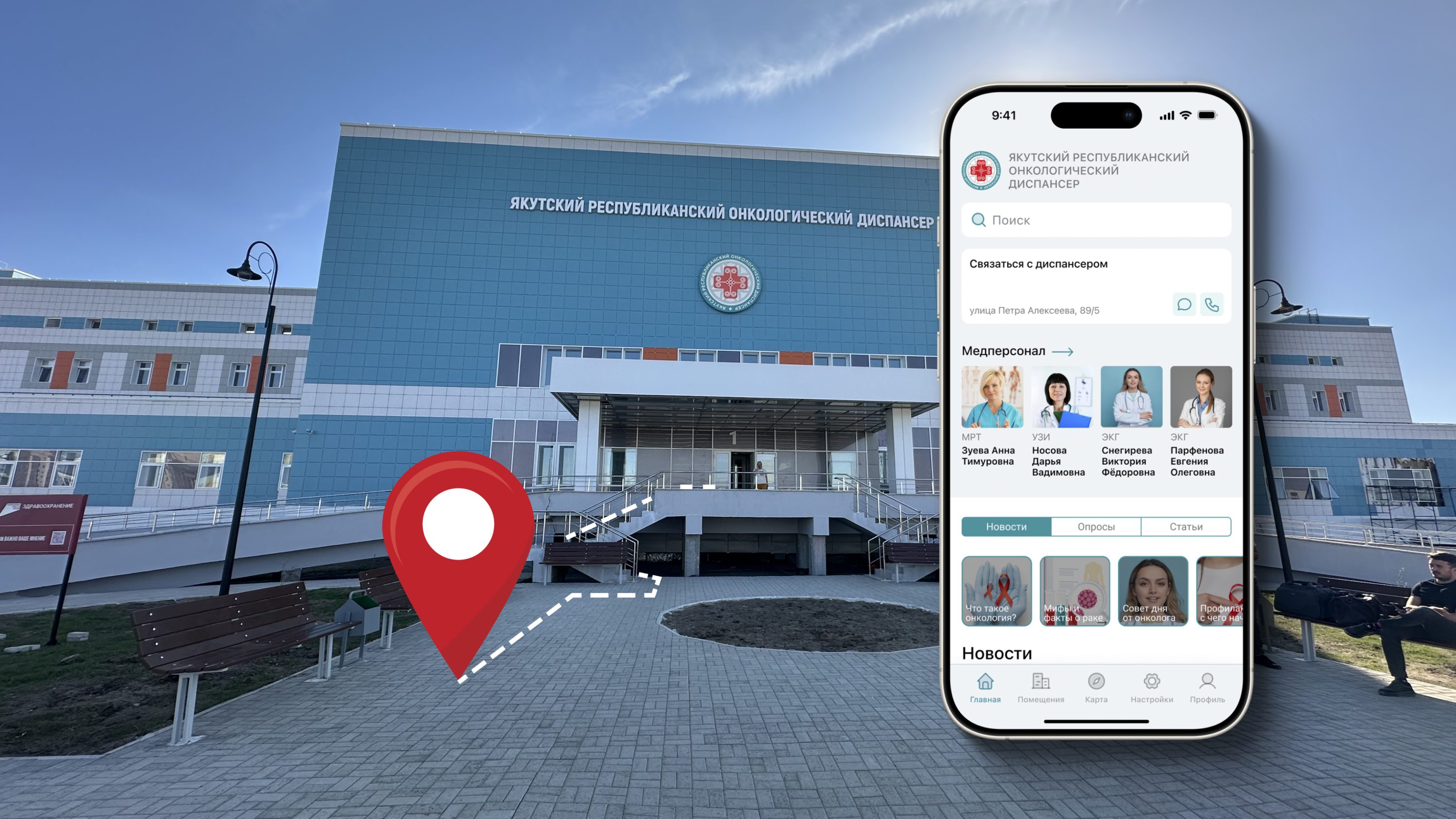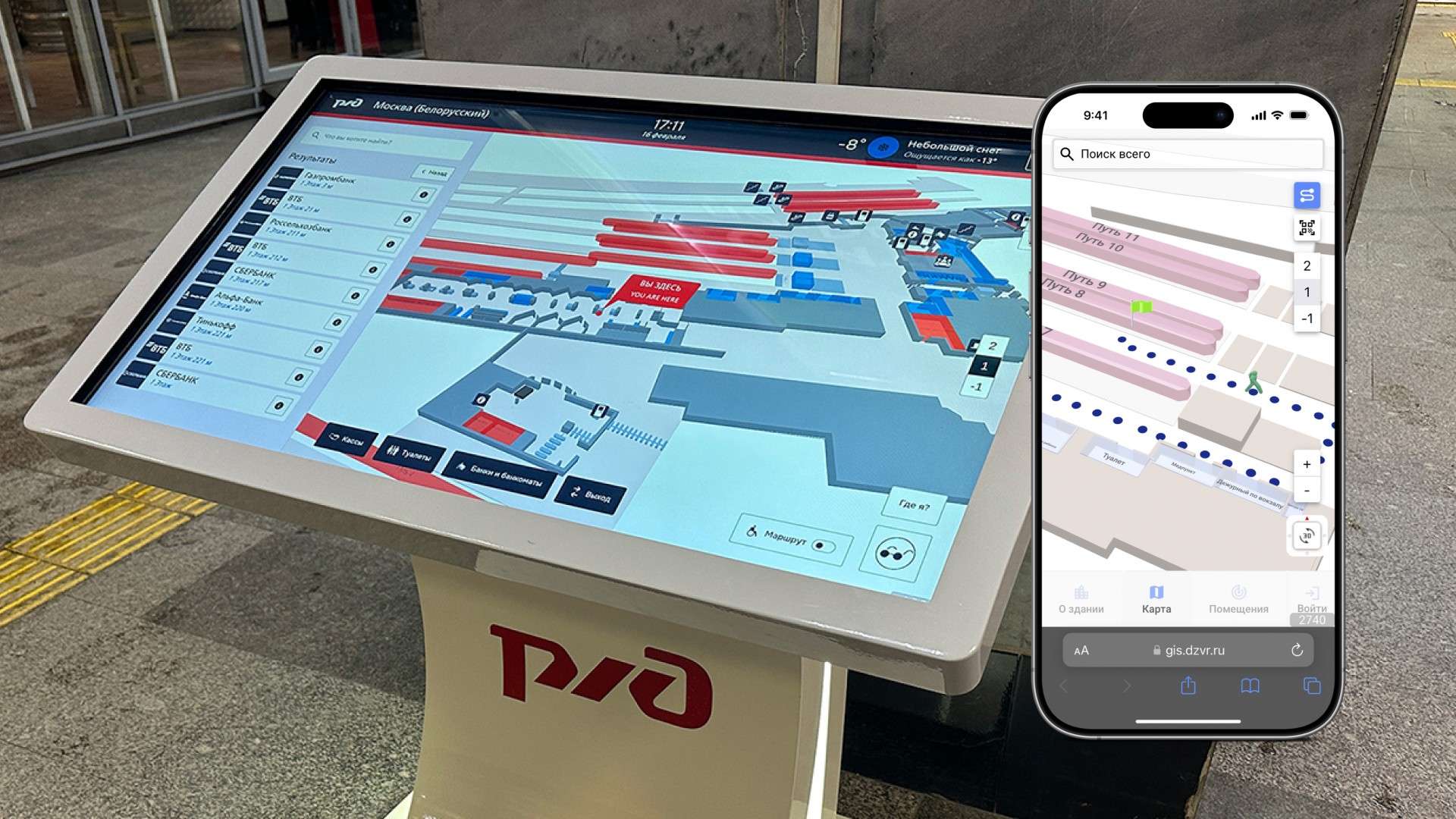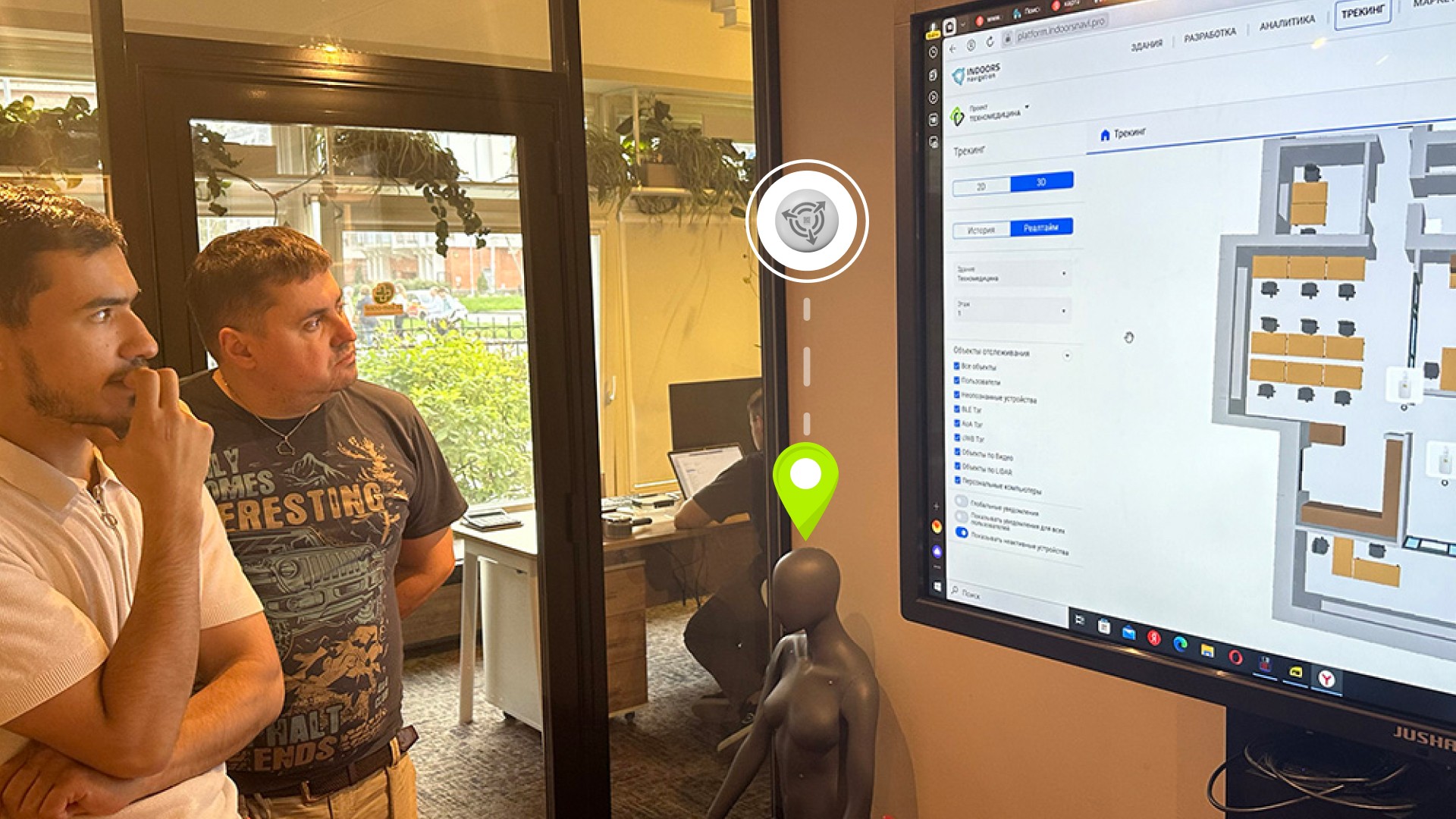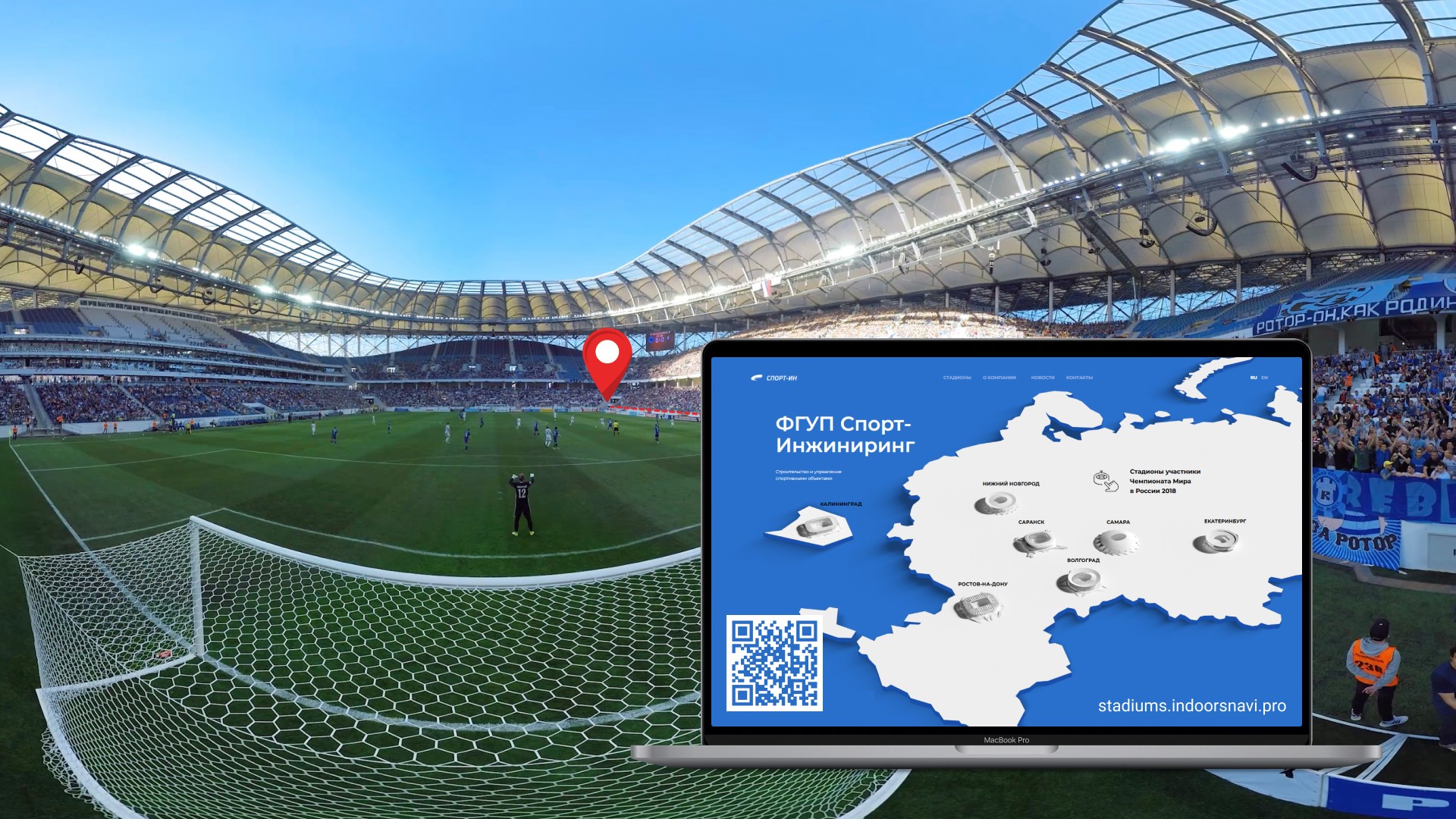2023
Interactive navigation with face recognition in Be Healthy
Indoors Navigation Company has implemented an innovative navigation system in the clinic "Be Healthy"
The main goal of the project is to improve the quality of patient care and reduce the time needed to find the right offices, doctors and other clinic facilities. As part of the project, a digital twin of the polyclinic was developed, integrated with interactive infomats and a facial recognition module.
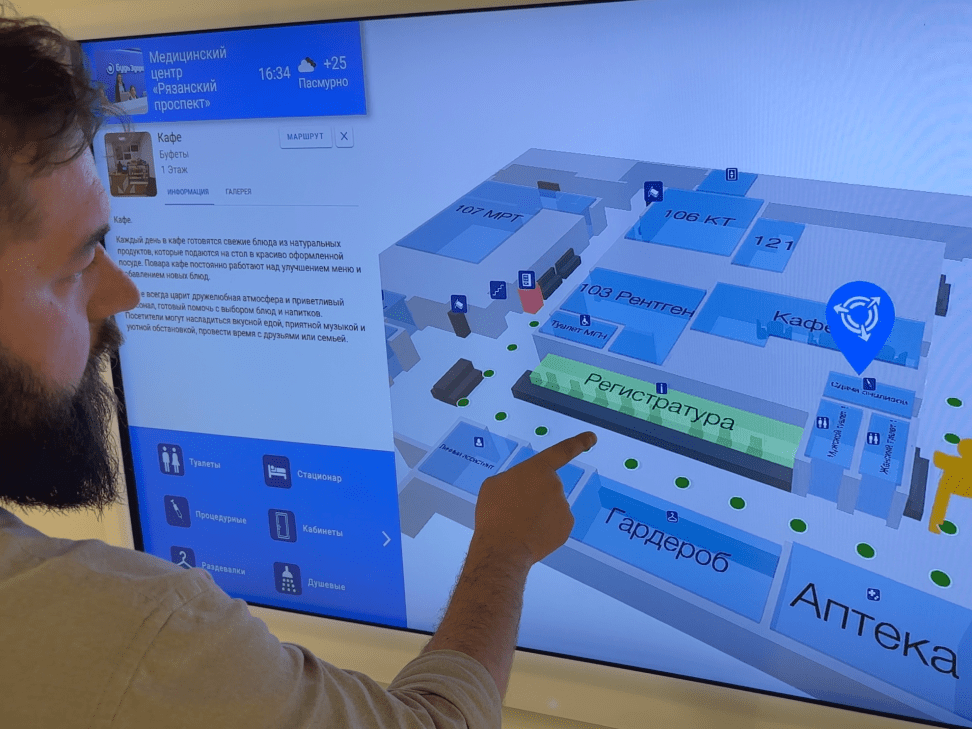
by 40%
Reducing the burden on the registry
by 2 times
Service acceleration
Solution description
To automate the processes and simplify navigation around the clinic, Indoors Navigation has installed interactive information boards that provide a detailed 3D map showing doctors' offices, waiting areas, cafes, elevators, toilets and other important facilities. Patients can easily find the right rooms, set routes, and receive information about appointment times. The system is updated automatically due to integration with the clinic's ERP system via the API.
Face recognition is a key element of the system. After reading the patient's face on the infomat, the system automatically builds a route to the desired doctor's office, which helps significantly reduce the burden on the registry. The built-in video camera and video analytics module provide fast and accurate recognition, allowing you to speed up the maintenance process by almost two times.
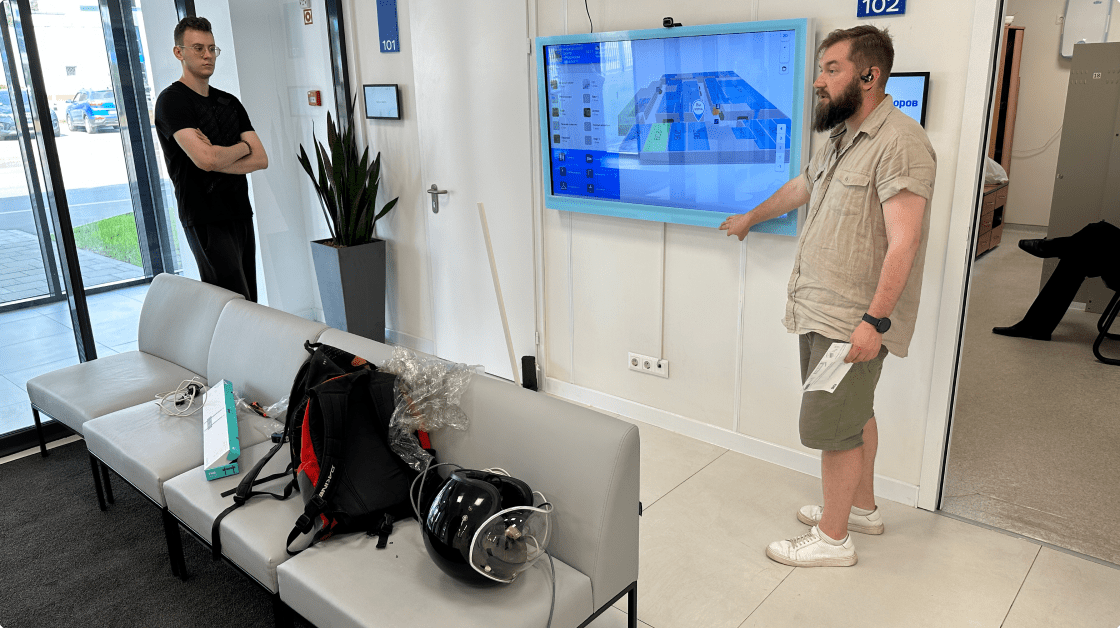
Functionality and usage examples
- Navigation for patients: The system allows you to build routes to doctors' offices, waiting areas and other facilities. This significantly reduces the time that patients spend searching for the right rooms and reduces waiting lists at the reception.
- Integration with the ERP system: Information about appointed doctors, appointment schedules and offices is automatically updated in the system, which eliminates errors and increases the relevance of the data.
- Facial recognition module: Thanks to the video camera and the recognition module, the patient can not enter data manually, but simply approach the terminal so that the system automatically builds a route based on the entries in the database.
- Easy navigation of clinic facilities: Terminals also help users find facilities such as elevators, toilets and waiting areas. The interactive map displays all the important objects, which makes the navigation process convenient and fast.
- Accessibility for all: Terminals and a navigation system are available for low-mobility groups of the population, offering specialized routes tailored to their needs.
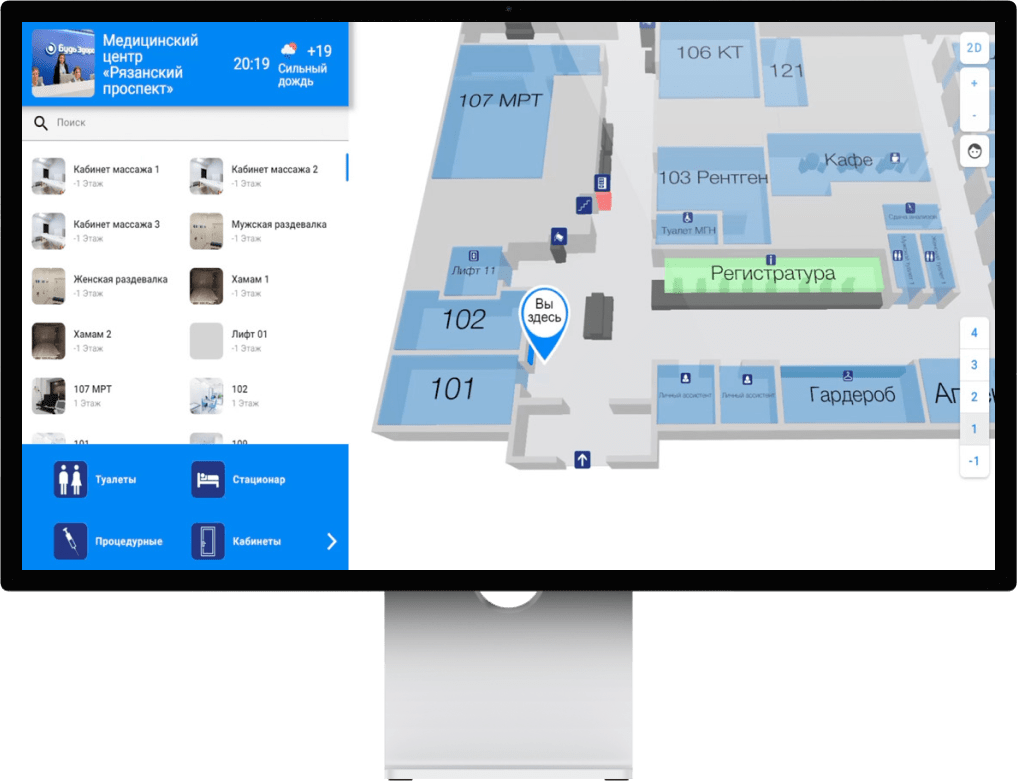
Technical architecture
The Indoors Navigation Platform includes modules for integration with the clinic's ERP system via an API, which ensures that data is up-to-date in real time. The video cameras connected to the infomats use a facial recognition module developed on the basis of a video analytics module to automatically identify patients and build routes.
Interactive infomats support high-resolution displays, and the built-in architecture of BLE beacons ensures accurate indoor positioning. This ensures uninterrupted operation of the system even at high levels of passenger traffic during peak hours.
Potential metrics
- Reducing the burden on the registry: The introduction of a face recognition system has reduced the number of calls to the registry by 40%, as patients can independently find the necessary information and build routes.
- Faster service: The facial recognition module has reduced the time spent searching for offices and doctors by almost half, which has increased overall patient satisfaction.
- Optimizing patient flows: The use of interactive maps and a navigation system has improved the distribution of patient flows in the clinic, which has reduced the likelihood of queues and congestion in certain areas.

Implementation results
The implementation of the Indoors Navigation Platform in the Be Healthy polyclinic has significantly improved the quality of patient care, reducing the time required to find doctors and offices, and reducing the burden on staff. Due to the automatic integration of data with the ERP system, up-to-date information about appointments is always available to patients. Facial recognition technology has proven to be an effective tool for speeding up processes and improving the user experience.
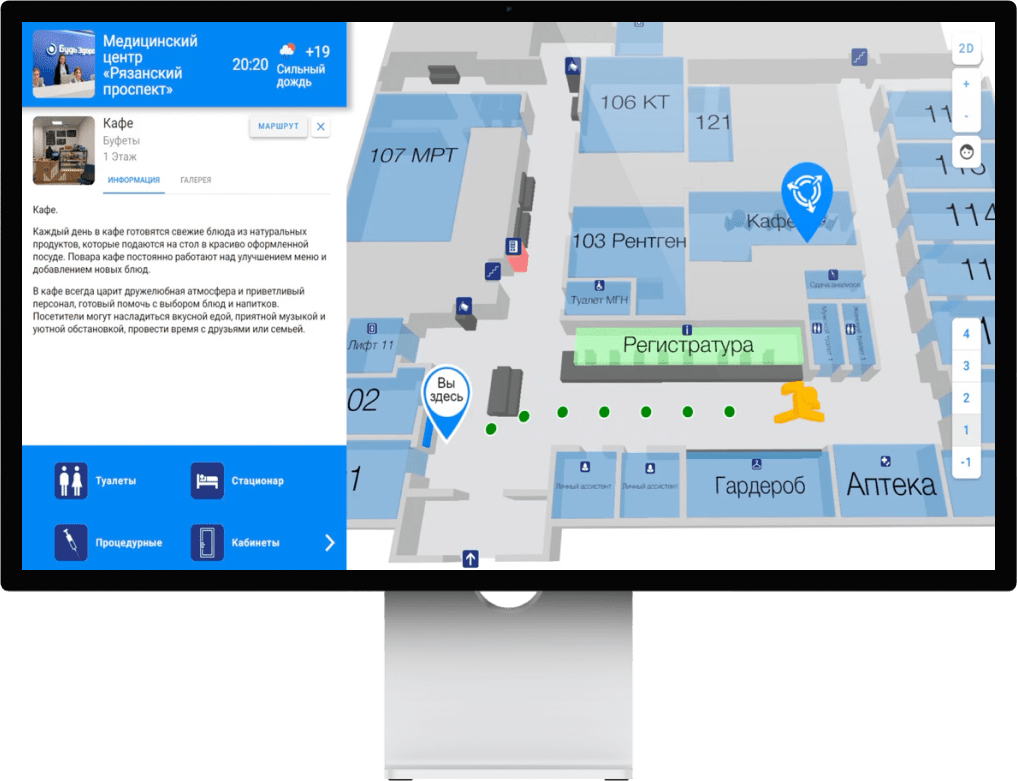
Conclusion
The INP interactive navigation system with a face recognition module has proven its effectiveness in medical institutions such as the Be Healthy polyclinic. It not only increases the convenience for patients, but also improves the efficiency of the clinic as a whole, reducing the burden on the registry and speeding up the service process.
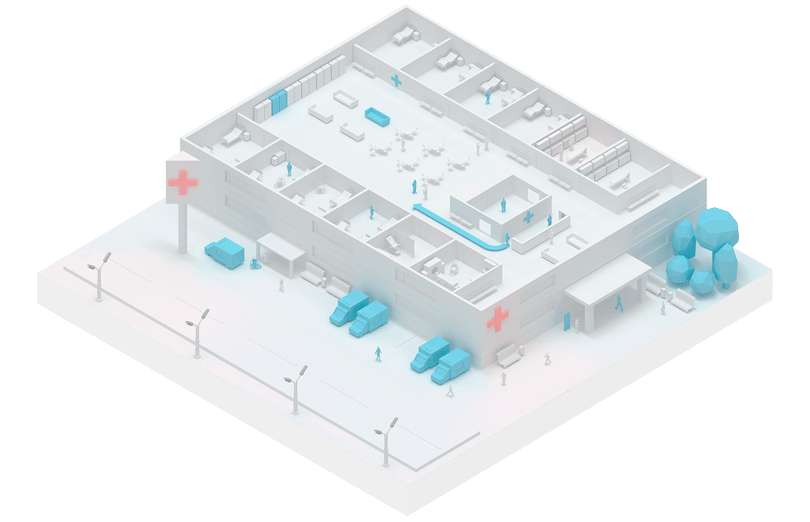
Hospital navigation
In medical institutions, visitors regularly encounter certain difficulties in finding the right office or ward. The presence of several buildings, passageways and confusing corridors significantly complicates orientation and forces patients to spend extra time searching for the right one...
Thematic publications on our blog
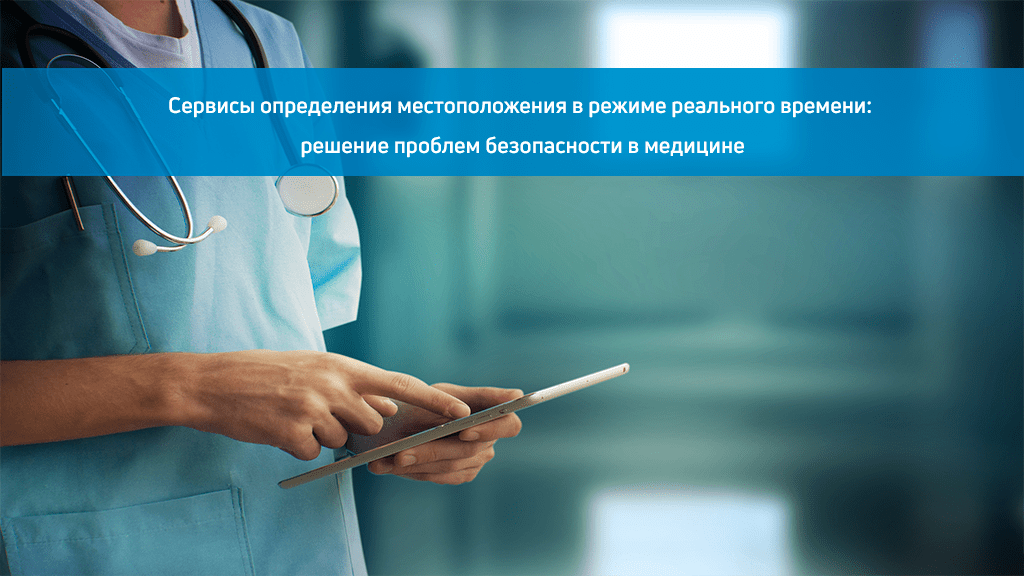
Real-time location services: Problem solving
The pandemic has significantly increased the burden on healthcare workers due to the high number of critically ill patients, reduced medications, and increased disease risks. Increased workload for many employees…
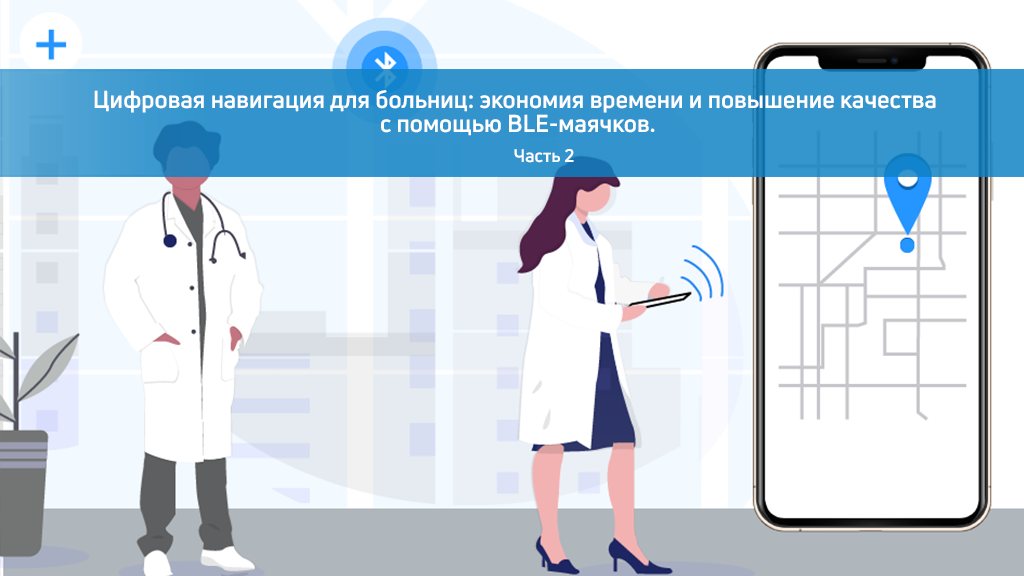
Digital navigation for hospitals: saving time and improving quality with BLE beacons
Approximately 40-50% of people who visit large medical institutions face difficulties in understanding where they need to be, which leads to…
